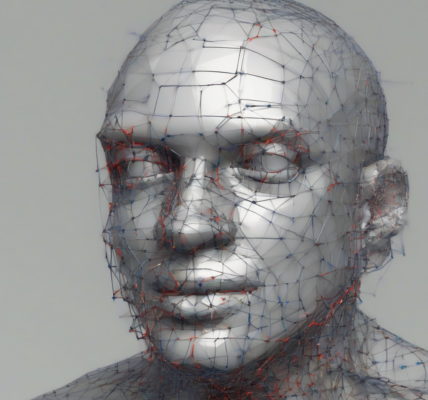Navigating the Complexities: Your Guide to NYC Criminal Attorneys
Facing criminal charges in New York City can be an overwhelming experience. The sheer volume of laws, the intricacies of the court system, and the potential consequences of a conviction demand expert legal representation. This comprehensive guide explores the crucial role of NYC criminal attorneys, offering insights into their expertise, the selection process, and the various types of legal assistance they provide.
Understanding the Role of an NYC Criminal Attorney
An NYC criminal attorney is a legal professional specializing in defending individuals accused of crimes within the five boroughs of New York City. Their primary responsibility is to protect their client’s rights and ensure they receive a fair trial. This involves a multifaceted approach encompassing investigation, negotiation, litigation, and advocacy.
- Investigation: A skilled attorney meticulously investigates the case, gathering evidence, interviewing witnesses, and analyzing police reports to build a strong defense strategy.
- Negotiation: Many criminal cases are resolved through plea bargaining, where the attorney negotiates with the prosecution to secure a favorable outcome for their client, potentially reducing charges or sentences.
- Litigation: If a plea agreement cannot be reached, the attorney prepares and presents the case in court, arguing before a judge or jury to secure an acquittal or a reduced sentence.
- Advocacy: Throughout the legal process, the attorney acts as a zealous advocate for their client, ensuring their rights are protected at every stage, from arrest to sentencing.
Types of Criminal Charges Requiring an Attorney
The need for an experienced NYC criminal attorney arises across a broad spectrum of criminal offenses. These can range from minor misdemeanors to serious felonies, each carrying its own unique legal complexities and potential penalties.
- Misdemeanors: These are less serious crimes, often punishable by fines or short jail sentences. Examples include petty theft, simple assault, and driving while intoxicated (DWI).
- Felonies: These are more serious offenses with significant consequences, including lengthy prison sentences, hefty fines, and a criminal record. Examples include robbery, burglary, assault with a deadly weapon, and drug trafficking.
- White-Collar Crimes: These are financially motivated nonviolent crimes, often committed by individuals in positions of trust. Examples include embezzlement, fraud, and insider trading.
- Traffic Violations: While some traffic violations are minor, serious offenses like reckless driving or driving under the influence (DUI) require legal representation to mitigate potential consequences.
Choosing the Right NYC Criminal Attorney
Selecting an appropriate attorney is critical in achieving a successful outcome. The process should involve careful consideration of several key factors:
- Experience and Specialization: Look for an attorney with extensive experience in handling cases similar to yours. Specialization in a particular area of criminal law (e.g., drug crimes, white-collar crime) is highly advantageous.
- Reputation and Track Record: Research the attorney’s reputation and track record. Look for testimonials, reviews, and case results that demonstrate their effectiveness in achieving favorable outcomes for their clients.
- Communication and Accessibility: Effective communication is essential. Choose an attorney who is responsive, readily available to answer your questions, and keeps you informed throughout the legal process.
- Fees and Payment Options: Discuss the attorney’s fees and payment options upfront to ensure transparency and avoid unexpected costs. Understand whether they charge hourly rates, flat fees, or contingency fees.
- Personality and Compatibility: Building a strong attorney-client relationship is crucial. Choose an attorney with whom you feel comfortable and confident in their ability to represent your best interests.
The Legal Process: What to Expect
The legal process following a criminal arrest can be intricate and time-consuming. A skilled NYC criminal attorney will guide you through each stage, ensuring your rights are protected.
- Arrest and Arraignment: Following arrest, you will be arraigned in court, where charges are formally read, and bail is set.
- Discovery: The prosecution is required to provide the defense with relevant evidence and information.
- Plea Bargaining: Negotiations with the prosecution may lead to a plea agreement, avoiding a trial.
- Trial: If a plea agreement cannot be reached, the case proceeds to trial, where the attorney presents evidence and arguments to a judge or jury.
- Sentencing: If found guilty, the judge determines the appropriate sentence, which may include imprisonment, fines, probation, or community service.
- Appeals: If convicted, the attorney may file an appeal to challenge the verdict or sentence.
Common Mistakes to Avoid
Navigating the complexities of the NYC criminal justice system requires careful planning and strategic decision-making. Avoiding certain mistakes can significantly improve your chances of a favorable outcome.
- Talking to the Police Without an Attorney: Anything you say to law enforcement can be used against you. Always invoke your right to remain silent and contact an attorney immediately.
- Ignoring Legal Advice: Follow your attorney’s advice closely. Their expertise is essential in navigating the legal process effectively.
- Failing to Gather Evidence: Preserve any evidence that could support your defense. This includes photos, videos, witness statements, and relevant documents.
- Failing to Understand Your Rights: Educate yourself about your rights, including the right to an attorney, the right to remain silent, and the right to a fair trial.
- Delaying Legal Assistance: Seeking legal representation as early as possible is crucial. An attorney can begin working on your case immediately, protecting your rights and maximizing your chances of a successful outcome.
The Importance of Early Legal Intervention
Early legal intervention is paramount in criminal cases. Contacting an NYC criminal attorney as soon as possible after being accused of a crime can significantly impact the outcome. An experienced attorney can:
- Preserve Evidence: Act quickly to secure evidence before it is lost or destroyed.
- Negotiate with Prosecutors: Begin negotiations early to explore potential plea bargains.
- Develop a Strong Defense Strategy: Build a comprehensive defense strategy based on a thorough investigation of the facts.
- Protect Your Rights: Ensure that your constitutional rights are respected and protected throughout the legal process.
- Minimize Potential Penalties: Work to reduce the potential penalties you may face, such as jail time or fines.
Finding Resources and Assistance
Finding reliable information and resources about NYC criminal attorneys and the legal process is crucial. Several avenues can provide valuable support:
- Online Legal Directories: Numerous online directories list NYC criminal attorneys, allowing you to search by specialization, location, and client reviews.
- Legal Aid Societies: Legal aid societies provide free or low-cost legal services to individuals who cannot afford an attorney.
- Bar Associations: State and local bar associations can provide referrals to qualified criminal defense attorneys.
- Friends and Family: Seek recommendations from trusted friends, family members, or colleagues who may have experience with criminal defense attorneys.
Conclusion (Not Included as per instructions)




